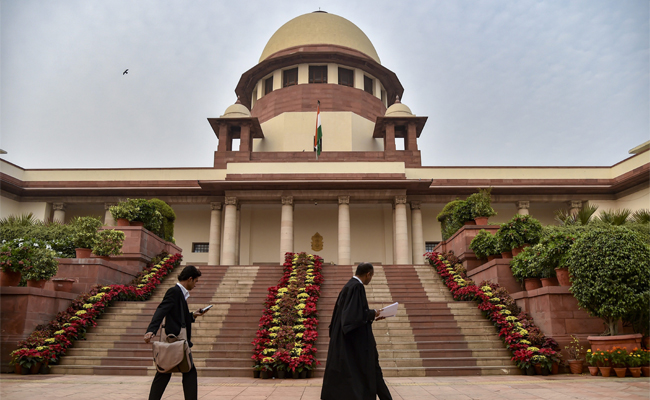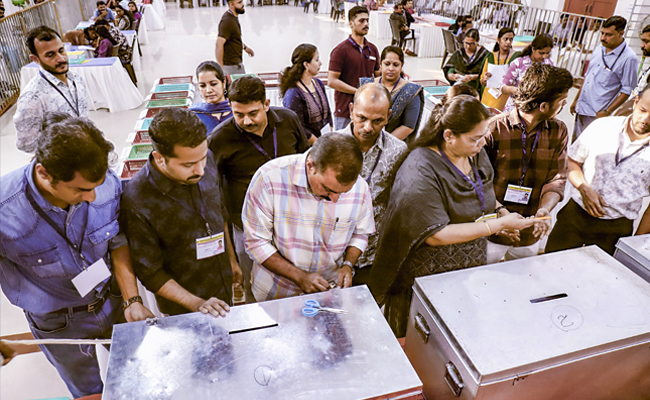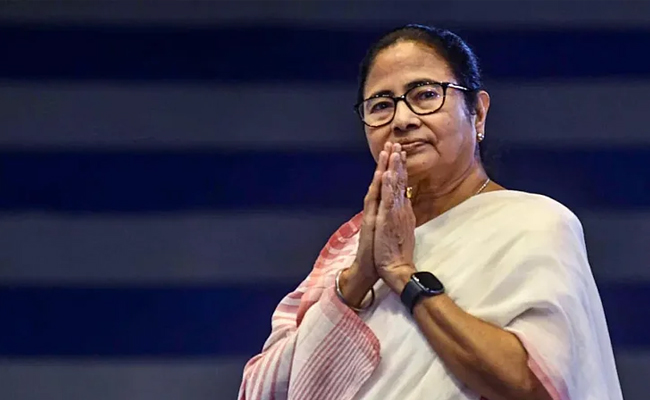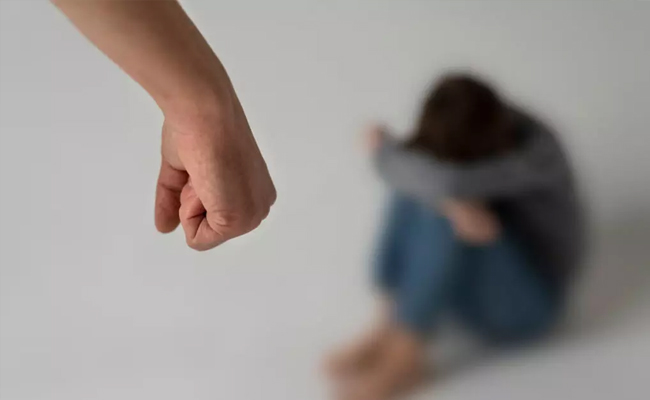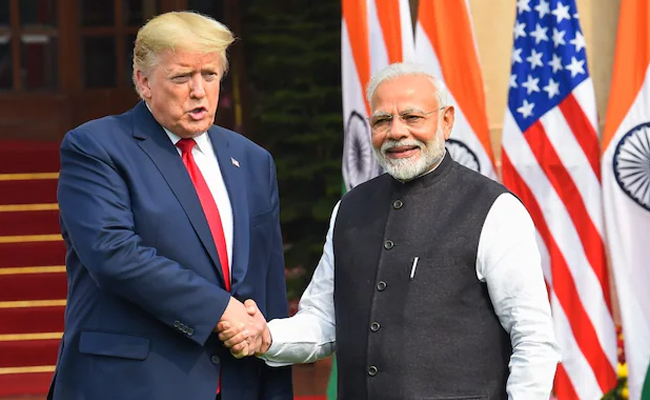New Delhi (PTI): In a landmark verdict, the Supreme Court on Monday held that watching and downloading child pornography are offences under the POCSO Act and the information technology law.
The apex court suggested Parliament consider amending the term 'child pornography' with "child sexually abusive and exploitative material" by bringing changes in law, and asked the courts not to use the term 'child pornography'.
A bench headed by Chief Justice D Y Chandrachud set aside the Madras High Court ruling that had said mere downloading and watching child pornography was not an offence under the Protection of Children from Sexual Offences (POCSO) Act and Information Technology (IT) Act.
The bench, also comprising Justices J B Pardiwala and Manoj Misra, also laid down certain guidelines on child pornography and its legal consequences.
"We have said about lingering impact of child pornography on victimisation and abuse of children and on role to report an offence, including role of society and stakeholders," the bench said.
"We have suggested to Parliament to bring an amendment to POCSO... so that definition of child pornography can be referred to as 'child sexually abusive and exploitative material'. We have suggested an Ordinance can be brought in," it said.
The top court delivered its verdict on a plea challenging the Madras High Court order.
On January 11, the high court had quashed the criminal proceedings against a 28-year-old man charged with downloading pornographic content involving children on his mobile phone.
While pronouncing the verdict, the apex court restored the criminal proceedings in the case saying the high court had erred in quashing it. The bench said the sessions court will now deal with the case afresh.
Terming the high court ruling atrocious, the apex court had earlier agreed to hear the plea challenging the high court ruling that had said mere downloading and watching child pornography was not an offence under the Protection of Children from Sexual Offences (POCSO) Act and Information Technology (IT) Act.
The high court had also said that children these days were grappling with the serious issue of watching pornography and instead of punishing them, the society must be "mature enough" to educate them.
The Supreme Court had taken note of the submissions made in the matter by senior advocate H S Phoolka, who represented two petitioner organisations, that the high court verdict was contrary to the laws in this regard.
The senior lawyer appeared in the court on behalf of NGOs Just Rights for Children Alliance, based in Faridabad, and the New Delhi-based Bachpan Bachao Andolan. The organisations work for the welfare of children.
The high court had quashed the criminal case against S Harish under the POCSO Act, 2012 and IT Act, 2000.
In order to constitute an offence under section 67B of the IT Act, an accused must have published, transmitted or created material depicting children in a sexually-explicit act or conduct, it had said.
"A careful reading of this provision does not make watching child pornography, per se, an offence under section 67B of the Information Technology Act, 2000," the high court had added.
Even though the said section of the IT Act has been widely worded, it does not cover a case where a person has merely downloaded child pornography in an electronic gadget and watched the same, without doing anything more, it had said.
Admittedly, two videos involving boys were downloaded and were available on the petitioner's mobile phone, and those were neither published nor transmitted to others and were within the petitioner's private domain, it had said.
The Madras High Court had, however, expressed concern over children watching pornography.
Viewing pornography can have negative consequences on teenagers down the line, affecting both their psychological and physical well-being, it had said.
The high court had advised the petitioner to attend counselling if he was still afflicted with the addiction of watching pornography.
Let the Truth be known. If you read VB and like VB, please be a VB Supporter and Help us deliver the Truth to one and all.
Thiruvananthapuram (PTI): Buoyed by the strong performance of the Congress-led UDF in the local body polls, KPCC president Sunny Joseph said on Saturday that the front's results indicated the people had rejected the LDF government.
According to early trends, the UDF was leading in more grama panchayats, block panchayats, municipalities and corporations than the LDF.
The local body polls were held in two phases in the state earlier this week.
ALSO READ: Cong candidate who moved Kerala HC for name reinstatement in voter list, wins
Speaking to reporters here, Joseph said the people of Kerala had extended their support to the UDF.
"We could expose the LDF government’s anti-people stance and the people understood it. The LDF’s fake propaganda was rejected by the people. The UDF is moving towards a historic victory," he said.
He said a united effort, proper preparations, good candidate selection and hard work had resulted in the Congress and the UDF’s victory in the elections.
Asked about the prospects in the Thiruvananthapuram Corporation, Joseph said the party was studying the matter and would comment later.
LDF convenor T P Ramakrishnan said the results would be closely examined.
According to him, the government had done everything possible for the people.
"Why such a verdict happened will be examined at the micro level. People’s opinion will be considered and further steps will be taken," he said.
He added that decisions would be taken after analysing the results. "If any corrective measures are required, we will initiate them and move forward," he said.
AICC leader K C Venugopal said the results showed that people had begun ousting those who, he alleged, were responsible for the loss of gold at Lord Ayyappa’s temple.
"This trend will continue in the Assembly elections as well. It is an indication that the people are ready to bring down the LDF government," he said.
Venugopal said the UDF had registered victories even in CPI(M) and LDF strongholds.
"I congratulate all UDF workers for their hard work. Congress workers and leaders worked unitedly," he said.
Referring to remarks made by Chief Minister Pinarayi Vijayan against the Congress on polling day, Venugopal said the voters had responded through the verdict.
"I do not know whether the chief minister understands that the people are against him. Otherwise, he does not know the sentiment of the people. The state government cannot move an inch further," he said.
He said the results indicated a strong comeback for the UDF in Kerala.
Asked whether the Sabarimala gold loss issue had affected the LDF in the local polls, Venugopal said the CM and the CPI(M) state secretary did not take the issue seriously.
"We took a strong stand on the matter. The BJP played a foul game in it," he alleged.
On the BJP's role in the local body elections, Venugopal alleged that the party operated with the CPI(M) 's tacit support.
"The CPI(M) supported the central government on issues such as PM-SHRI, labour codes and corruption in national highway construction. The CPI(M) is facing ideological decline, and the state government’s policies are against the party’s own decisions," he said.
Meanwhile, LDF ally Kerala Congress (M) leader Jose K Mani said the party could not win all the wards it had expected in the elections.
He congratulated winners from all parties and said the party would closely examine the losses and identify shortcomings. "Later, we will take corrective measures," he added.
Senior Congress leader and MP Rajmohan Unnithan said the trends in the local body elections indicated that the UDF would return to power in the 2026 Assembly elections.
"We will win 111 seats as in 1977 and return to power in 2026. The anti-government sentiment of the people is reflected in the elections," he said.
Unnithan said the people were disturbed and unhappy with the present government.
"The trend indicates the end of the LDF government," he added.
CPI(M) MLA M M Mani said the people had shown ingratitude towards the LDF despite benefiting from welfare schemes.
"After receiving all welfare schemes and living comfortably, people voted against us due to some temporary sentiments. Is that not ingratitude," he asked.
Mani said no such welfare initiatives had taken place in Kerala earlier.
"People are receiving pensions and have enough to eat. Even after getting all this, they voted against us. This is what can be called ingratitude," he said.
Muslim League state president Panakkad Sayyid Sadiq Ali Shihab Thangal said the results were beyond expectations.
"The outcome points towards the Secretariat in Thiruvananthapuram, indicating that a change of government is imminent. We are going to win the Assembly election," he said.

